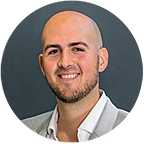Ideas in the Wild: Author Nick Donofrio On The Greatest Lesson His Father Taught Him
Guiseppe D’Onofrio emigrated to America in 1904, becoming a hatmaker in Beacon, New York’s Italian ghetto. His third son, Nicholas Joseph Donofrio, served as an aircraft mechanic in World War II, returning home to become a guard at a hospital for the criminally insane.
Nicholas’s son, Nick Donofrio, grew up to lead IBM as Executive Vice President of Innovation and Technology. Now, in his new book If Nothing Changes, Nothing Changes, Nick shares his story of driving transformation — not just within the realm of technology, but across generations. Nick explains how he led IBM’s global technical team to embrace a market-centric focus, redefining innovation and sparking worldwide collaboration for a new Big Blue.
I recently caught up with Nick to learn more about why he wrote the book and the ideas he shares with readers.
Why did you write this book?
My fifty-seven years as an engineer, technologist, and business leader have seen extraordinary developments in technology, paralleled by equally profound social and cultural changes. I was fortunate to work at the heart of many of these technological changes during my forty-four years at IBM (1964–2008) and always challenged myself to do my part in driving and enabling them.
I was well-prepared for IBM, having received a great education in engineering at Rensselaer Polytechnic Institute and Syracuse University, along with lasting instruction in life, change, and innovation at the hands of my father. Eventually, I was in a position to lead many of IBM’s key decision making efforts about existing and emerging technologies, forming the teams that developed and released those technologies, and enabling so many talented engineers, scientists, and businesspeople to innovate.
Change and innovation were such important parts of my career, and the results of those changes and innovations transformed both IBM and our clients, and later in my life, other enterprises and entities that I have had the pleasure of serving. They transformed me as well.
I hope to show the reader a few new ideas and a better understanding of both the history and the future of innovation and the impact that it has had and will continue to have on all of us.
What’s an idea you share that really excites you?
My father loved to sit on the front porch during summer nights after a hard day of work. He would have a few beers. He would sit there waving at friends who drove by, and they would beep their horns. Here, I knew, was where I had the best chance to catch him in the right mood for the conversation I had envisioned.
Finally, one night, I made my move. It was just the right time and the right moment. Maybe it was the cool of the summer evening. Maybe I just could not hold it inside anymore. Whatever it was, I went out onto the porch and said to my father, “Can we talk about my something, Dad?”
“Sure,” he said. “Sit down. Let’s talk.”
After years of struggle, I finally asked my father, “Why do you push me so hard? Why is nothing ever good enough? Why do you have to be so controlling?”
He sat quietly for a few moments before saying, “Because if nothing changes, nothing changes.”
He paused, letting that sink in a bit with me. Then he continued, “Son, if you are not happy with what you have been getting, then why keep doing what you have been doing, since all you will be getting is what you have been getting? If you want something different, then you have to do something different. You have to change.”
How will understanding your idea improve your readers’ lives?
This guidance was simple, yet so profound, and I admit that it would take me a long time to fully process the wisdom behind his words. But I understood them enough. I understood that he had a plan for me and was doing what he could do to build me into a better person, because he wanted me to have a better life than he did. I also realized that he thought that if I grew up in a strict home, I would learn how to achieve levels of success he could not even imagine. I would end up in a better place, because he had not taken the path of least resistance with me.
As my relationship with my father matured, I started to see things as he did. I understood why quality — and the sense of pride that came with it — was so important. I learned that whatever job I was doing, I should do it well and with dedication. And as I saw the results of our work, I eventually realized that I was no longer working out of fear. I was adopting my father’s work ethic, commitment to quality, and pride as my own. I was seeking excellence for its own sake. I was developing a crucial mindset I would need later in my career.
